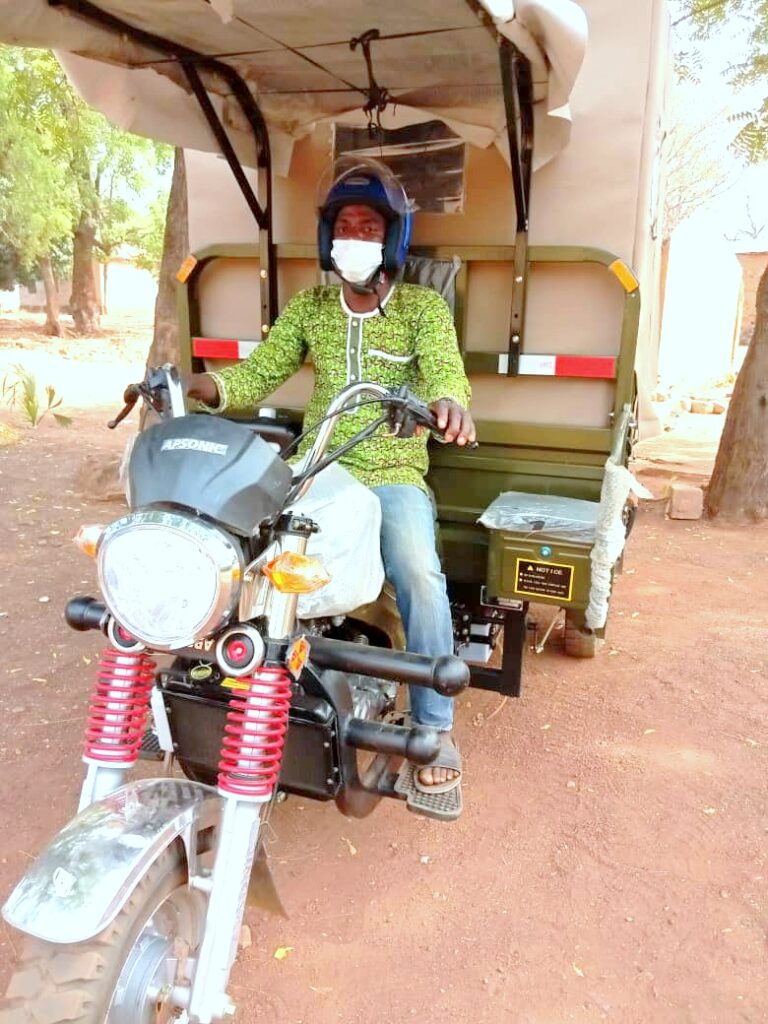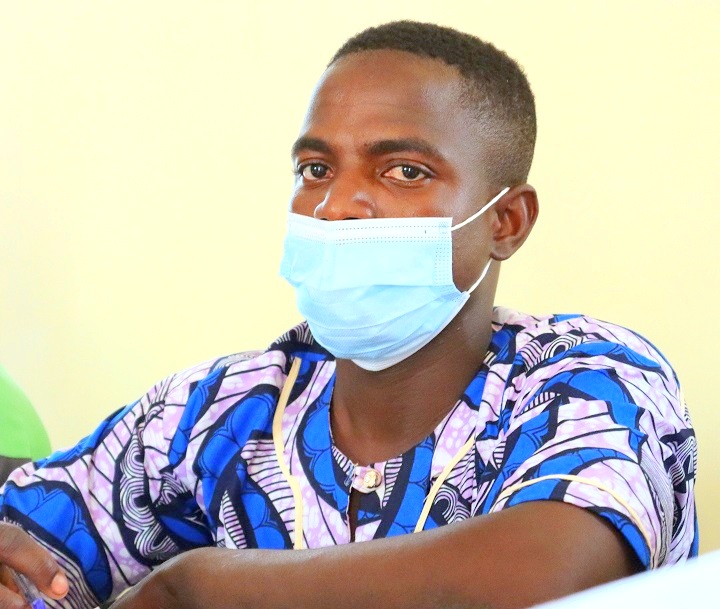Jean Kayobé BATCHENE, a 26-year-old man, sits in a room at the Binah District Youth Center, focusing on the ambulance driver training materials in front of him. Jean is one of 14 ambulance drivers trained in the Binah District to implement the rural emergency transport program. Jean used to be a welder, but after this training, he will be saving lives while assisting with emergency cases in his community and taking patients to the health center or central hospital.
Why is there a need for a rural emergency transport program?
Despite the overall success of Integrate Health’s Integrated Primary Care Program, which serves 204,810 people in northern Togo, emergency transport from remote communities to health centers and regional hospitals remains a major challenge. In rural areas, there is no emergency medical system to ensure that mothers and children in remote communities receive the care they need when they need it. Patients must find their own transportation to reach community health centers and regional hospitals, regardless of their condition and at great risk to their lives. To address this challenge, Integrate Health created a rural emergency transportation program by providing motorcycles with attached trailers that have been converted to function as ambulances. All patients need to do is call the head nurse or Community Health Worker in case of an emergency, and the ambulance driver will be notified to meet them and take them to the health center.
Fourteen ambulance drivers trained in the Binah district
Integrate Health is implementing the tricycle ambulance project in the Binah district after successfully implementing the program in the districts of Kozah, Kéran, Bassar, and Dankpen. To carry out this program, Integrate Health hires on-call drivers who undergo extensive training in first aid and traffic regulations. To date, 14 drivers have been trained in the Binah district.

As one of the newly trained drivers, Jean is excited to start his new role and help his community now that he has the skills and is equipped to do so. He said:
“I have always been sensitive to health issues in my community. So, when I heard that Integrate Health had a recruitment process for tricycle ambulance drivers, I did not hesitate to apply. It is a good thing that we have people who think about us, who think about how to help us care for our patients. I intend to do my job seriously.”
After the launch of the Integrated Primary Care Program in the Binah district last year, the rural emergency transport program has proven to be useful as more and more patients utilize the health center and are able to get help in emergency situations.

